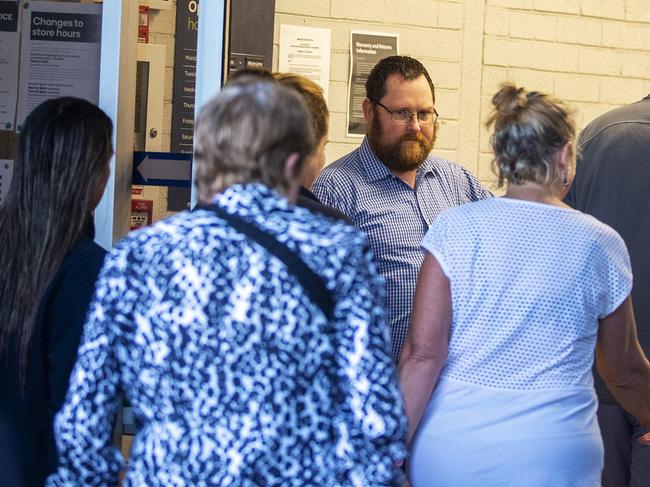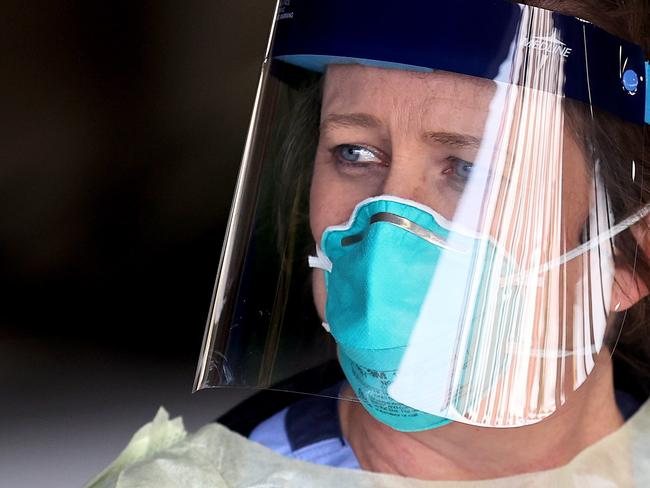Australians urged to consider end of life plan amid coronavirus outbreak
It’s a conversation nobody wants to have. But with the outbreak of the coronavirus, now more than ever Australians need to discuss their end of life preferences.
National
Don't miss out on the headlines from National. Followed categories will be added to My News.
- Unprecedented plan to save Aussie businesses and jobs
- COVID-19 v the flu: What’s the difference?
- Aussies’ surprising $190 safeguard against coronavirus
Families are being asked to discuss end of life preferences with older relatives and ask whether they wish to sign an Advance Care Directive as they prepare for the fallout from the coronavirus.
An Advance Care Directive sets out the types of medical treatments a person may want or refuse as they near the end of their life.
It can also appoint another person to take over decisions about your health care when you are no longer able to make these decisions.
The Medical Director of Advance Care Planning Australia (ACPA), Dr Karen Detering and Dr Chris Moy, Chair of the AMA Ethics and Medico-Legal Committee and advance care planning ambassador, are urging people to prepare now for the months ahead.

“Families need to prepare for a time where they may be called upon to make decisions for their loved one who may become suddenly ill with coronavirus. Research tells us that too many families find themselves in the devastating situation of making decisions blindly, without knowing or discussing their loved ones preferences. There is an opportunity to act now,” said Dr Chris Moy.
“Advance care planning is important for everyone, but it’s especially important for older Australians, particularly those with existing conditions such as lung and heart disease, cancer and diabetes. We recommend they start a conversation with people close to them and potentially choose a substitute decision maker they can trust to make decisions for them if needed.
“We’re mindful that these conversations can be very challenging, particularly in light of the anxiety around COVID-19, but being prepared for future events can also provide individuals and families peace of mind, amid the uncertainty of these unsettling times.
“Best case scenario is that these plans are never required. But it can be reassuring for a person to know they have some control. It’s also a great gift to give your family and lessen the burden of difficult future decisions,” said Dr Moy.
ACPA operates a free National Advisory Service to support the general public and health and aged care providers regarding advance care planning.
“We expect to retain full service to Australians during this crisis through our National Advance Care Planning Advisory Service. If you’ve got questions about your individual circumstances or a loved one, get in touch,” said Dr Detering.
“For some people the global coronavirus pandemic is a powerful trigger to take a more active approach to their future care. If you need advice, please call us. We’re here to help.
“We understand that there’s a lot of confusion and fear at the moment. While we don’t want to exacerbate anxieties, we do want Australian families to feel as prepared as possible for what lies ahead.

“I’ve seen what families go through when they are required to make these decisions for family members in an emergency and without preparation. A little planning today can go a long way towards alleviating the decision-making burden left to your loved ones. Be clear about what you want or don’t want. It starts with a simple conversation about what living well means to you,” said Dr Detering.
For families and individuals wishing to document their preferences or choose a substitute decision maker, ACPA recommends completing an Advance Care Directive and/or formally appointing a substitute decision maker.
Please note that forms and requirements differ across Australia.
Access to information and relevant forms can be found at advancecareplanning.org.au.
The National Advisory Service operates Monday to Friday (AEST). Freecall 1300 208 582.
Originally published as Australians urged to consider end of life plan amid coronavirus outbreak


